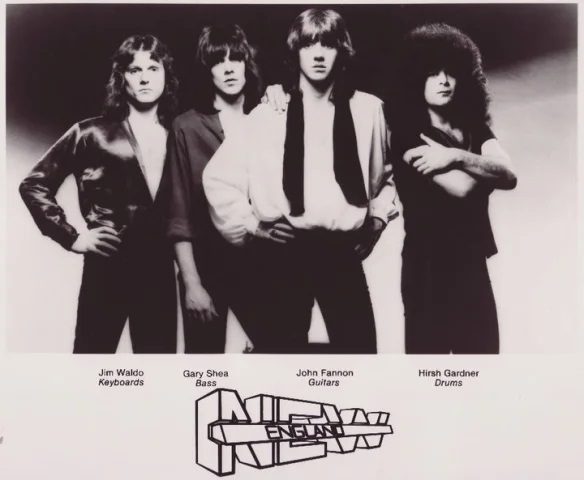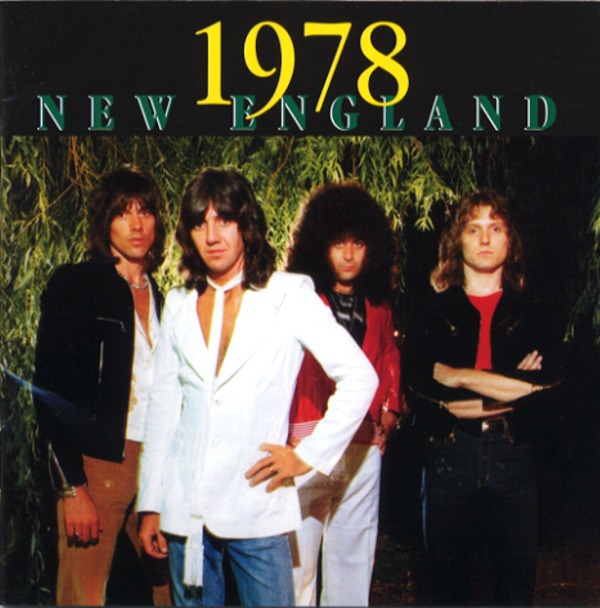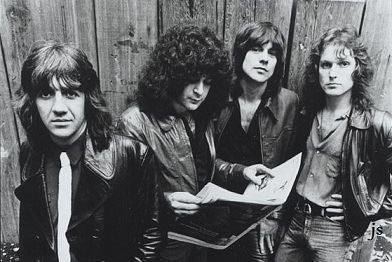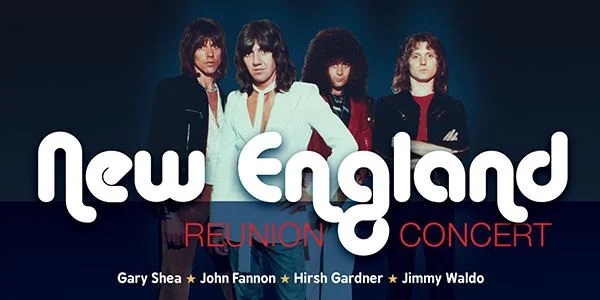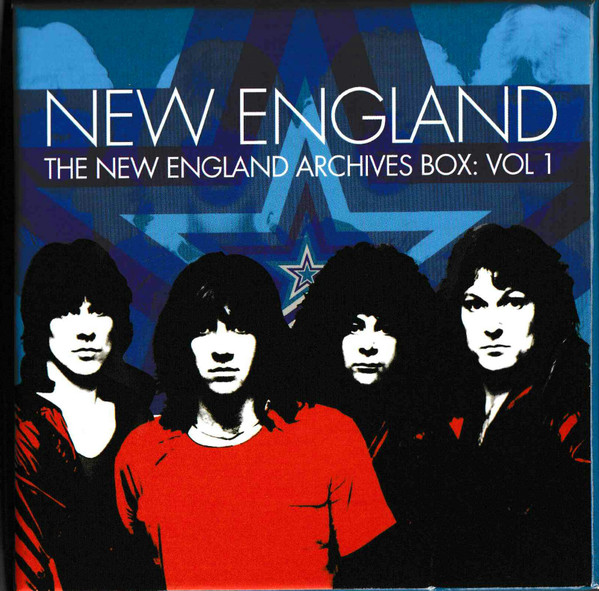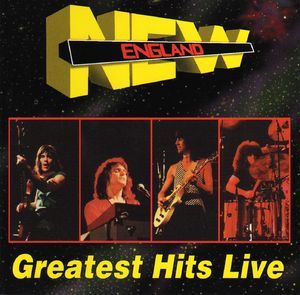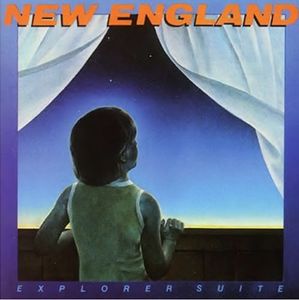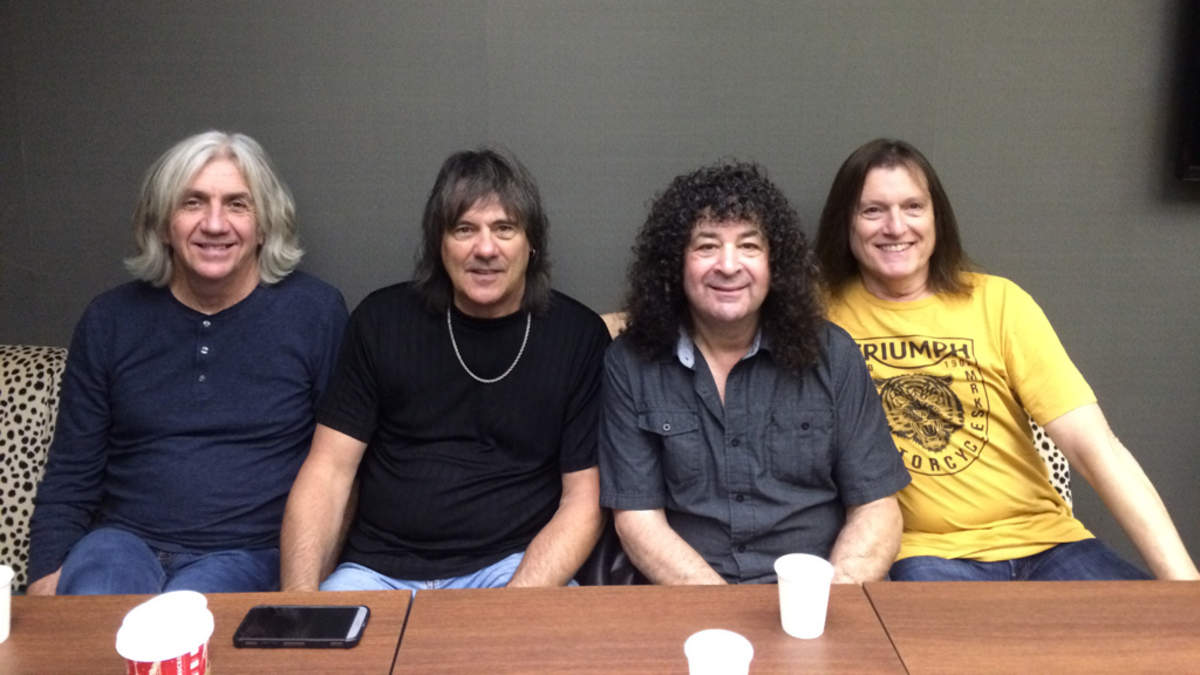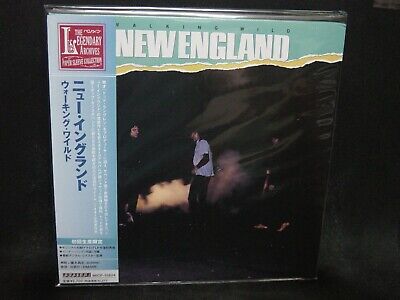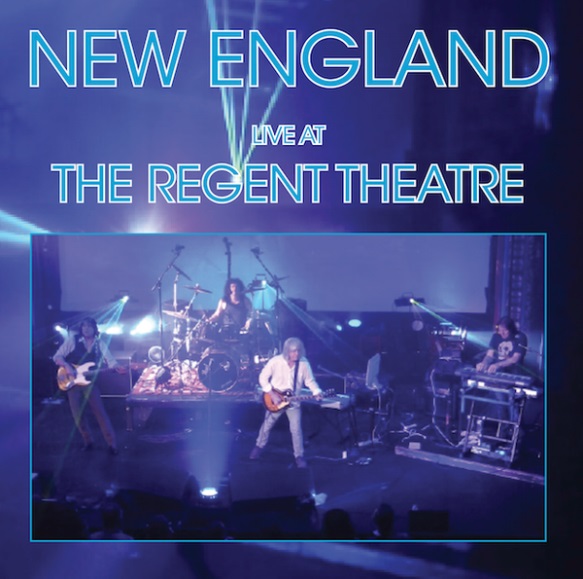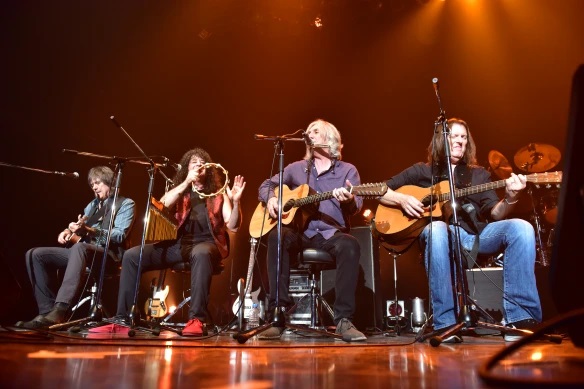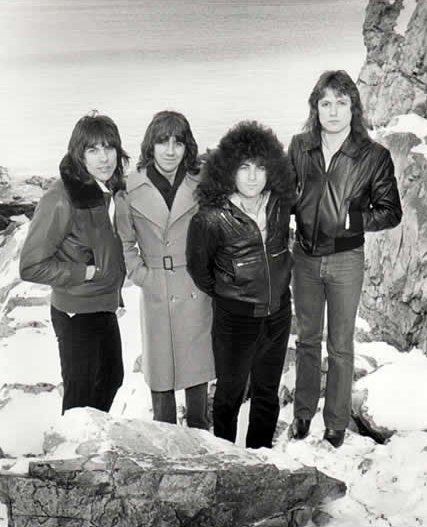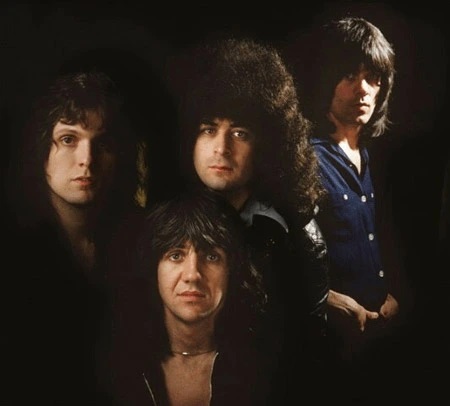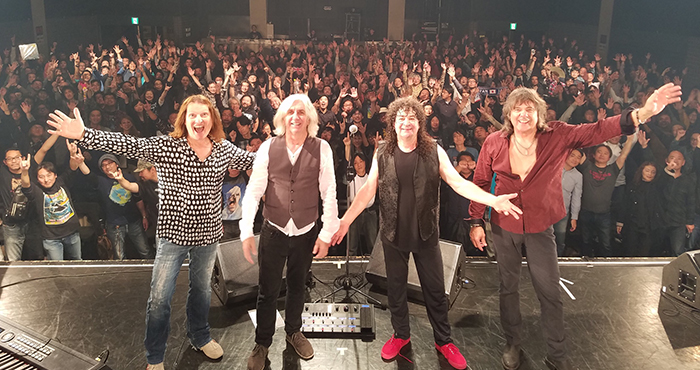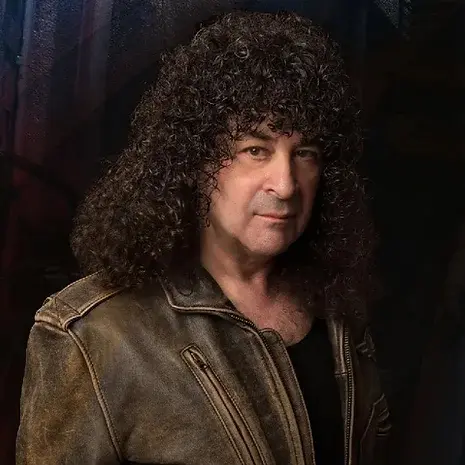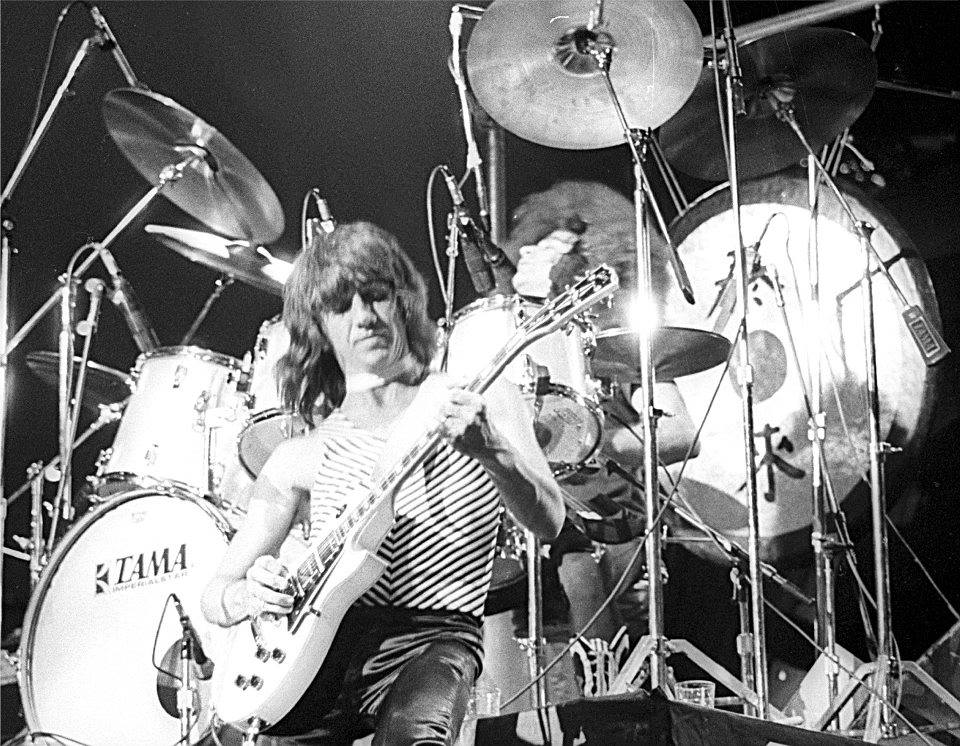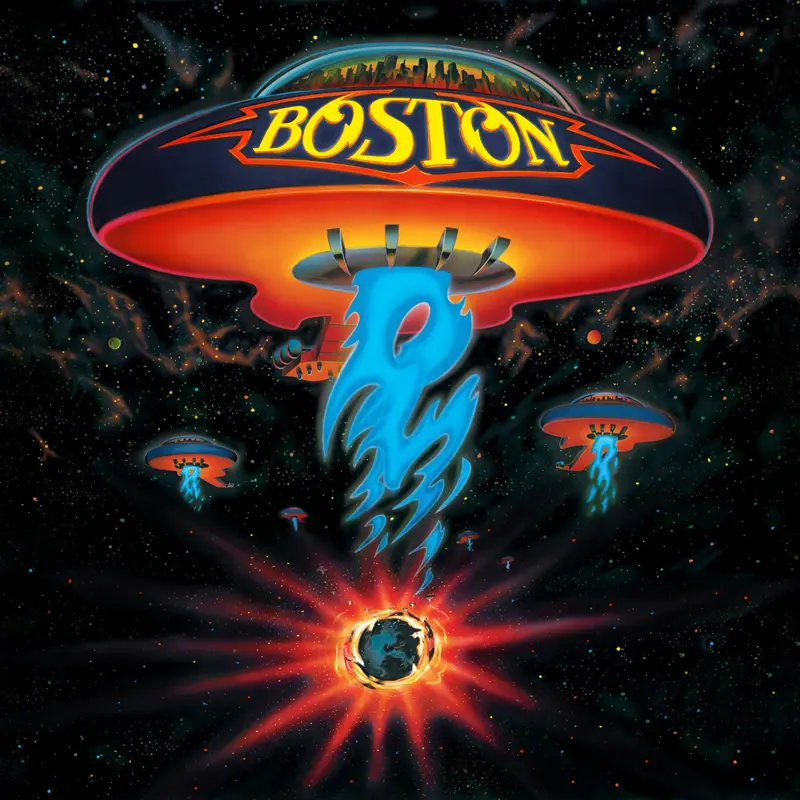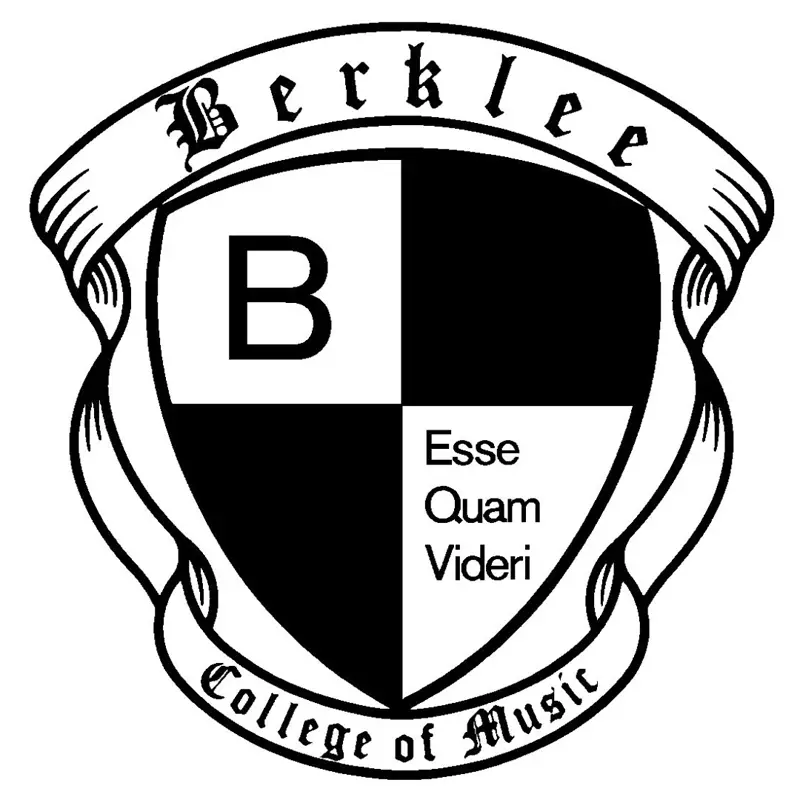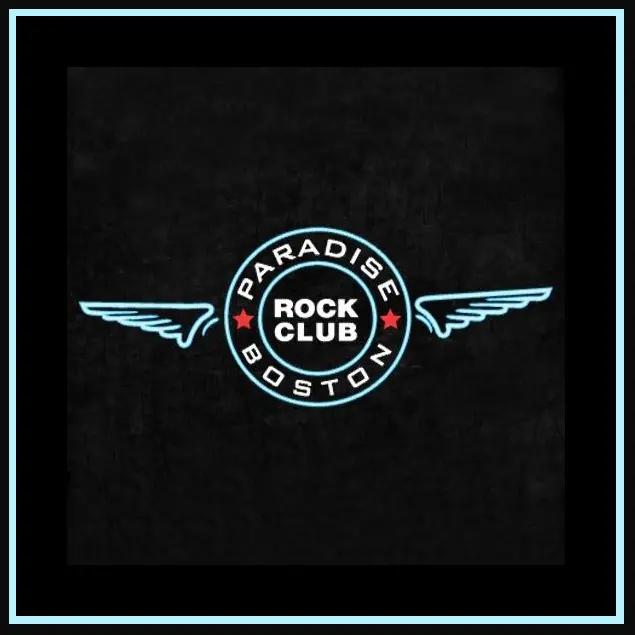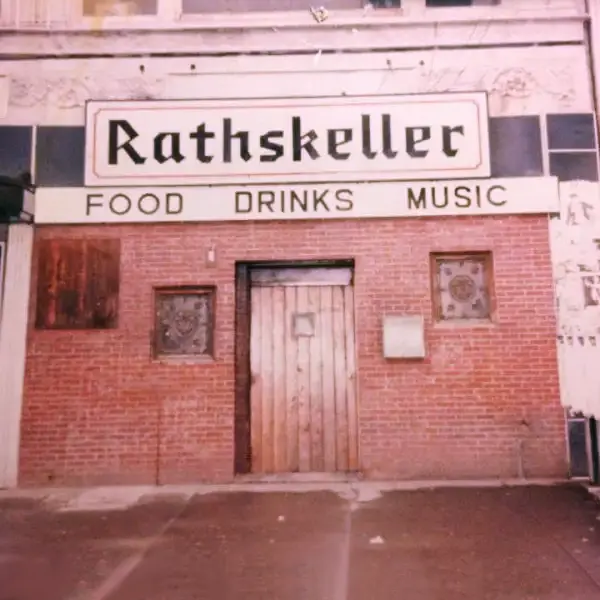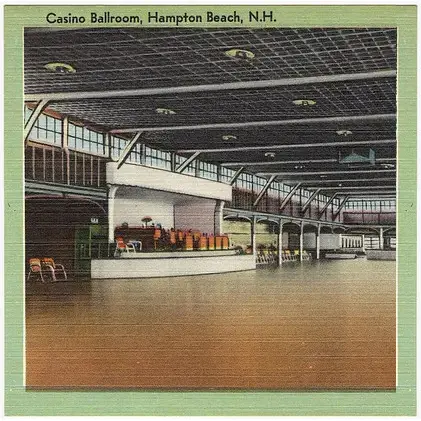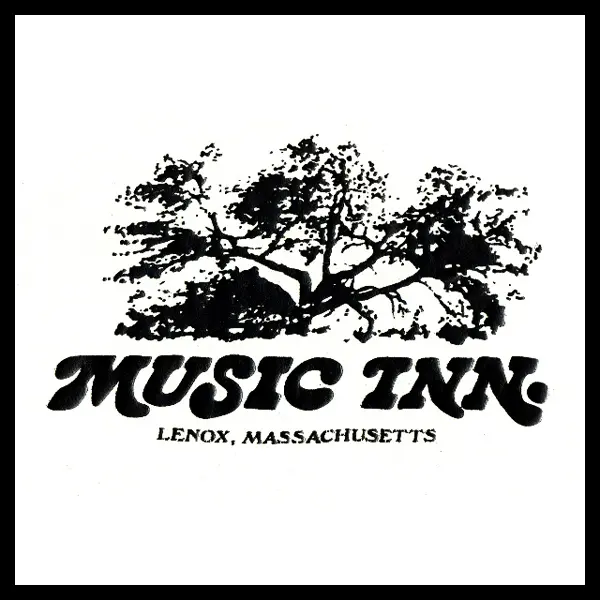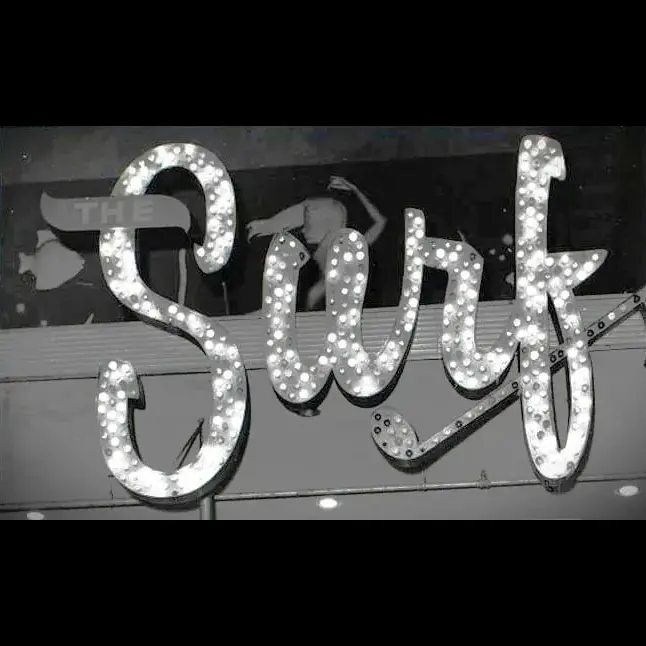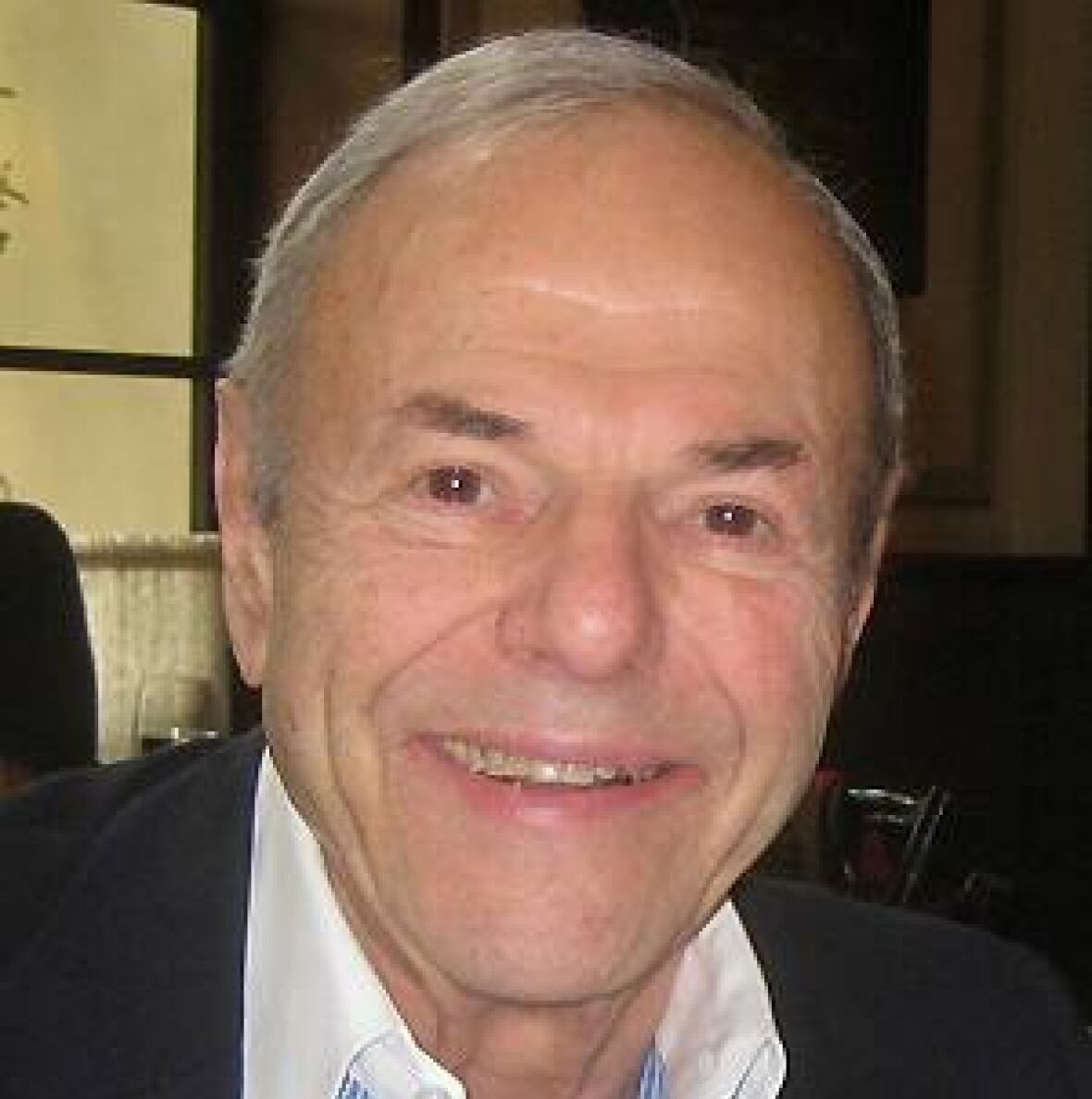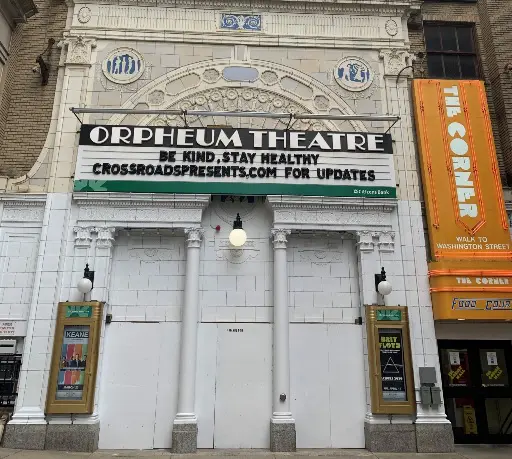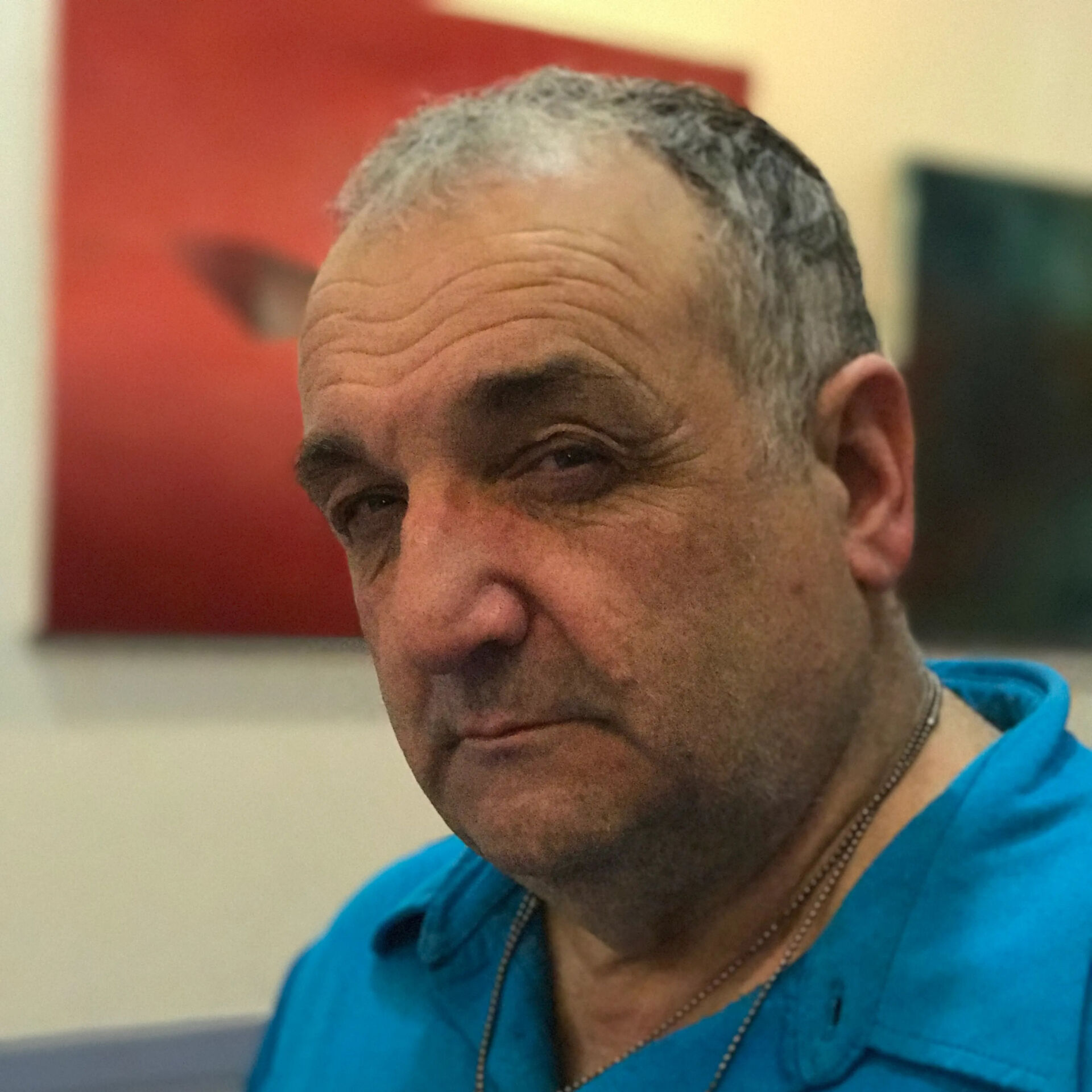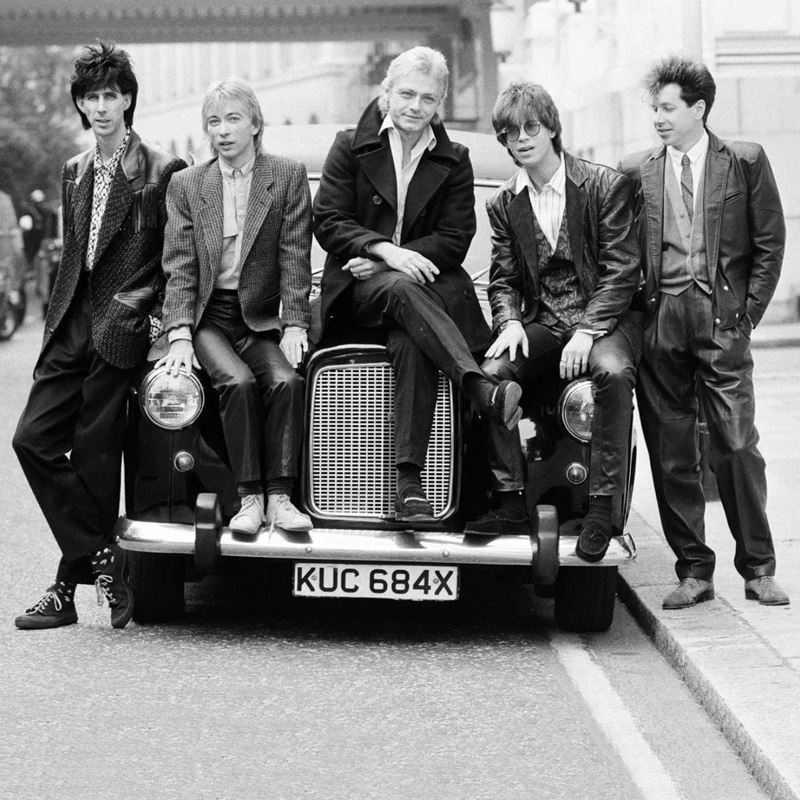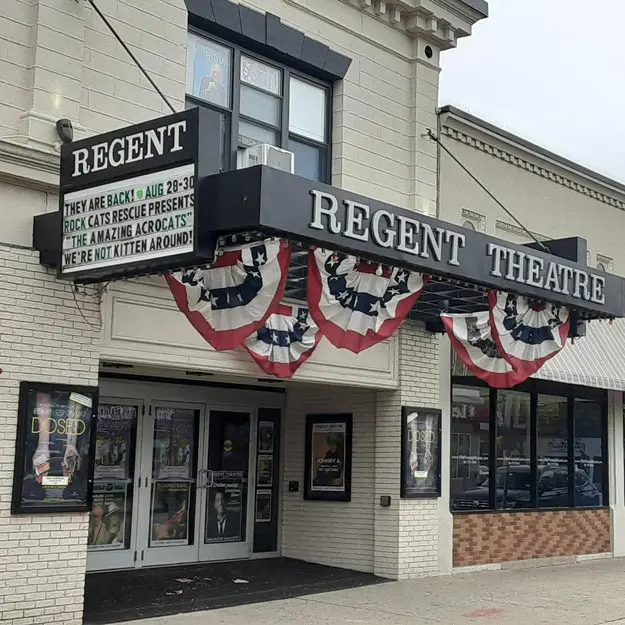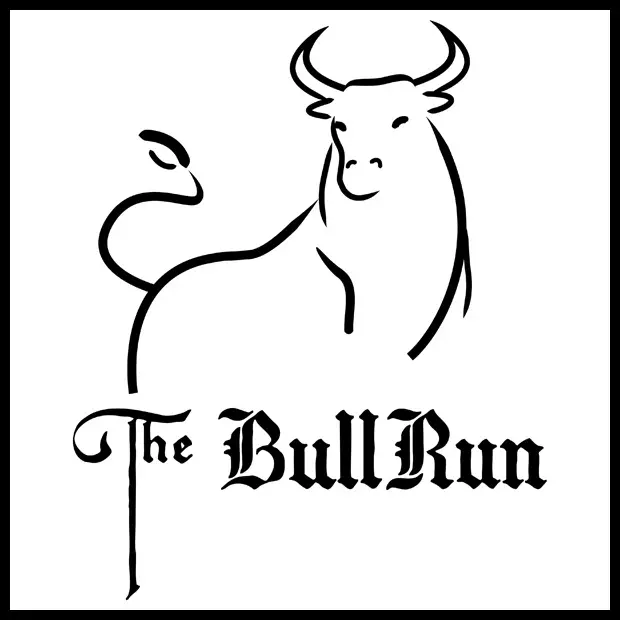New England
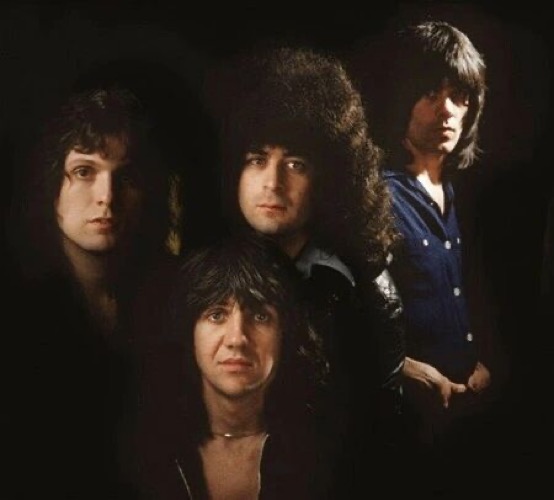
“The name ’New England’ really doesn’t have much to do with the fact that we lived in New England,” said Hirsh Gardner, the band’s drummer, in 2016. And that’s because unlike chart-topping ‘70s groups Chicago, Kansas and Boston – named solely for the places where they formed – New England’s name is, most significantly, a musical tip of the hat to Old England.
“We did live in New England, of course, but our influences were early English bands and we wanted to present a new English style, based in America – in New England,” Gardner told Tokyo-based magazine Roppongi Rocks. “So, ‘New England’ represents the American thing and a new style of English music.”
And with that witty bit of wordplay and a sound the band describes as “power-melodic-orchestrated-song-oriented rock,” the group built an impressive fan base across North America, the UK, Europe and Japan. Known for being more experimental than other hard-rock acts but not plumbing the deepest depths of prog rock like Yes, Rush and Peter Gabriel-era Genesis, the band has recorded three studio albums and one live LP since forming almost 50 years ago – their debut LP being far and away their most commercially successful – and is hoping to record a fourth studio disc at some point.
FORMATION, SOUND, MANAGEMENT
New England was formed in Boston in 1976, the dawn of the arena-rock era, by John Fannon (lead vocals/guitar), Jimmy Waldo (vocals/keyboards), Gary Shea (vocals/bass) and Berklee College of Music graduate Hirsh Gardner (lead vocals/drums). The quartet had been playing together since 1973 with the group Fatback and in two early iterations of New England, Target and Jack (with lead vocalist Kenny Mele).
From the outset, their plan was to rehearse relentlessly – without playing any live gigs – in order to create a unique sound that would attract labels. A major part of that sound became the mix of Fannon and Gardner’s distinctive voices, which separated them from similar groups that relied on one lead singer. “We really work on the blend and how our vocals come out,” Gardener said in 2016. “We’ve done that for years and we’ve had vocal rehearsals all the time. I’ve got to mimic the way [Fannon] phrases his notes and then, if I get that right, [Waldo] can try to mimic the way we’re both singing. That’s really hard to do – making it sound like Crosby, Stills, Nash & Young.” Fannon is the band’s main songwriter, but most songs have been credited to “New England” on their albums.
The group’s original manager was Ayer, Massachusetts, native Bill Aucoin, a Northeastern University graduate credited with having discovered KISS in the early ‘70s. He managed that group until 1982 and others on his roster included Billy Idol, Spider, Starz and Piper. “Bill was great,” Waldo said in 2016. “He was a ‘pick-up-the-phone-and-make-it-happen’ kinda guy. Just incredible.”
DEBUT ALBUM
In 1978, Aucoin landed the band a deal with MCA, which released their self-titled debut disc on the Infinity sublabel in the spring of 1979. They made their very first live appearance (under Quincy Market’s iconic double-elliptical dome) at the record-release party, having done nothing but rehearse and record until then.
Co-produced by Mike Stone (Queen, Journey, Asia) and KISS guitarist/vocalist Paul Stanley, it reached #50 in the Billboard 200 and produced two singles that cracked the Billboard Hot 100: “Don’t Ever Wanna Lose Ya” (#40) and “Hello, Hello, Hello” (#69). Though it failed to chart, the song “P.U.N.K.” – which is about a punk, not punk rock – received widespread critical praise. The supporting North American tour included appearances at the Paradise Rock Club, the Rathskellar and The Channel in Boston, Music Inn in Lenox, The Surf Nantasket in Hull and Hampton Beach Club Casino. Through 1980, the band toured as the opener for several stadium-filling acts, including KISS, Journey, Cheap Trick and Styx.
EXPLORER SUITE
In 1980, New England signed with Elektra Records and cut their sophomore studio LP, the 11-track LP Explorer Suite, produced by Stone. Hoping to repeat the gigantic success of Queen’s “Bohemian Rhapsody” – the 5:55-long suite Elektra/Asylum Chairman Joe Smith allowed to be released in late 1975 (which hit #1 in the UK and #9 in the US in early ‘76) – the label issued the 6:38-long title track as a single. While it failed to chart, it became an instant fan favorite and American rapper Travis Scott used samples of the song on his 2023 tune “Sirens.” Two other tracks from the album, “Conversation” and “Living In The Eighties,” saw decent airplay, particularly in New England, but neither made the national charts.
A number of critics postulated that the album didn’t achieve broad commercial success because it was too mainstream for prog rockers and to prog-rock for the mainstream. “The sugar-coated and pop-covered production of the album makes for great radio hits, but makes for scratchy ears for any prog fan,” wrote Andy Webb in Prog Archives. “It is far-fetched to call the band ‘crossover prog’ in general and this album accentuates any negating argument to the band’s progressiveness.” Other critics said the LP’s low sales probably resulted from Aucoin focusing more on KISS and two of his other acts, Starz and Piper, than on New England.
WALKING WILD, DISBANDING, WARRIOR, ALCATRAZZ
The band recorded its third and most recent studio album, Walking Wild, in 1981. Produced by Todd Rundgren and issued by Elektra, it rocked harder than its predecessors but did relatively little to expand the group’s existing fan base despite several tracks getting positive feedback from critics (“You’re There,” “DDT” and the Rundgren-Fannon-Waldo-penned “L-5”). A Prog Archives review said the disc “integrates a wide range of influences without striving too hard to duplicate any specific one of them” but “has more than its fair share of lightweight throw-aways.”
After roughly a year of touring, during which they appeared on a double bill with The Joe Perry Project at the Orpheum Theatre in Boston, Fannon left the band and was replaced by Connecticut native Vinnie Vincent; the revised lineup changed their name to Warrior and recorded some demos. In mid-1982, after Vincent joined KISS (replacing original member Ace Frehley), Waldo and Shea began playing with ex-Rainbow vocalist Graham Bonnet and guitar virtuosos Yngwie Malmsteen and Stevie Vai in the band Alcatrazz. Gardner pursued solo projects while becoming a major behind-the-scenes player in the Boston area on the production side.
NEW ENGLAND 1978, OTHER COLLECTIONS
In 2000, GB Music released a 10-track collection of demos and alternate takes, New England 1978, which Boston-based critic Joe Viglione praised as far more sophisticated than demos The Cars made around the same period. The album “provides the world with a glimpse of John Fannon’s music prior to it being put through the rock ‘n’ roll machine of major labels, major management and major record producers,” he wrote, adding that New England “might have been a force to be reckoned with” had they been able to develop beyond their trio of albums. Several other collections have been released including Greatest Hits Live (GB Music, 2003) and New England Archives Box, Vol. 1 (Cherry Red/HNE, 2019).
REUNION, LIVE AT THE REGENT THEATRE
In late 2002, after two decades apart, the original New England lineup reunited to record “More Than You’ll Ever Know,” a song from Gardner’s 2002 solo disc Wasteland for Broken Hearts. The group began playing live in the Boston area semi-regularly after that and Shea and Waldo made several appearances at conventions held by the National Association of Music Merchants (NAMM). In 2009, Wounded Bird Records reissued both Explorer Suite and Walking Wild on CD and in 2015 GB Music issued the band’s first new single in over 25 years, “I Know There’s Something Here” (b/w a re-recording of 1980’s “Conversation”).
In 2014, the band recorded Live at the Regent Theatre (at The Regent Theatre in Arlington, Massachusetts); it was issued in November 2016 by GB Music/Sony Megaforce in the US and Europe and by King Records in Japan. Since then, New England has appeared multiple times at other New England venues including The Bull Run and several times in Japan, where they’ve maintained an ardent cult following. “We were getting letters from Japanese fans way back in ’80 and ’81,” Gardner said in November 2016 before a sold-out show at the 1,300-seat Club Citta in Kawasaki (about 12 miles from Tokyo).
COMMENTS ON NEXT ALBUM, LONGEVITY
Asked in 2016 if there’s a fourth studio album in the works, Fannon said there was but didn’t offer a specific timeline. “I know we’ve been saying this for a while, but yes, I think we have to have a new studio album and we’re committed to doing that,” he told Roppongi Rocks. “How quickly that happens, I’m not sure, but I’m feeling inspired right now, for sure. I get up in the morning with the same passion that I had 40 years ago and I can’t wait to get into the studio. I think that is why this is all going to work.” In December 2023, Fannon said a new album still hasn’t come together because band members have been busy with other projects, but that he’s “been composing and producing all these years.”
Asked in 2016 what’s kept the band together for almost five decades, Shea talked about the members’ close-knit relationship. “It just feels good because we’re good friends. In other bands you don’t get that,” he said. “A lot of bands in Los Angeles are just project bands, you know? Not to mention names, but some guys do a different record every month with some other guys – get-the-money-and-run kind of projects. It’s really hard to find guys that are your brothers and we’re family.”
“This is not a stepping stone for another band, since we’ve stepped on the other stones to be here,” he added. “New England is the band! ”
(by D.S. Monahan)

